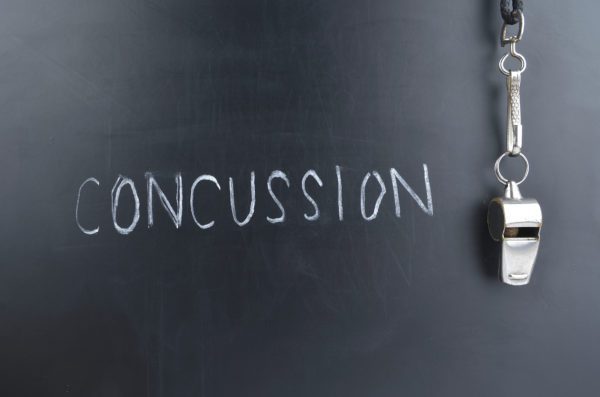USA Today: Outdated misconceptions make concussions worse
Only one game into the newest NFL season and we’re already in knee-deep controversy surrounding concussions. After a series of unpunished helmet-to-helmet hits on the Carolina Panther’s Cam Newton, many worried that the reigning MVP was concussed. In all likelihood, you know where this is going by now — there was no stoppage of play to see if Newton was good to continue and the game rolled on in Denver. While many players-league wide have spoken out about the Broncos’ targeting of Newton, there’s been very little chatter about the NFL’s allegedly-improved concussion protocol.
As demonstrated time and time again, the NFL consistently drops the ball on protecting their billion dollar assets — so who is left to protect the younger ones? The answer is, astonishingly, still nobody. While organizations can preach the importance of brain safety, they’re still letting the actual practice of it go by the wayside. In an article titled How you might be making your child’s concussion worse Josh Hafner of USA Today details the findings of a fascinating study. Hafner lays it all on the line and the conclusion isn’t pretty:
“In an age of increased concussion awareness, the poll released Tuesday by UCLA Health suggests that well-meaning parents may go too far in restricting the activities of a child with a concussion, hampering the brain’s healing process and stymying recovery. ‘In the past, there was often a tendency to downplay the significance of concussions,’ said Christopher Giza, a pediatric neurologist at UCLA. ‘Now some parents go too far the other direction and, despite their best intentions, they can inadvertently complicate their child’s recovery.’
While the sentiments in questions are understandable, the use of those outdated notions are making things far worse. For example, about 75% of parents in the study would wake up a concussed child to check on them — but that actually slows the healing process down. Furthermore, reduced screen-time for a concussion is likely a good idea, but 64% of parents said they’d take away smartphone use.
Unfortunately, UCLA Health believes that this can cause a child to feel isolated and alone, making potential further psychological damage rise greatly. Now, it would seem, the pressure is on the community to pick up the slack in our youth sports environments. If the NFL won’t even put their star players through the protocol, it is up to the coaches, parents, role models to make this right.
A great first step, then, would be understanding this new and crucial information — how should we approach the symptoms? What’s the right course of action? Do I need to treat my child any differently? Studies like these are huge boosts for the community and it’s likely that the country as a whole were unaware of these innocent mistakes they were making.
If we can team up on all fronts, we can ensure that coaches aren’t sending athletes back into games with concussions, followed up with an appropriate recovery period thanks to their parents. So, what’s the best advice moving forward? Well, Giza says that it’s probably fine to pivot slightly, but not too much. As he puts it, parents must find ‘the sweet spot for that level of activity that doesn’t make their symptoms tremendously worse but reassures them and moves them along the path to normalcy.”
Together, we can do it; divided, and without the NFL’s help, we may just fall.
USA Today — How you might be making your child’s concussion worse
How useful was this post?
Click on a star to rate it!
Average rating 0 / 5. Vote count: 0
No votes so far! Be the first to rate this post.




